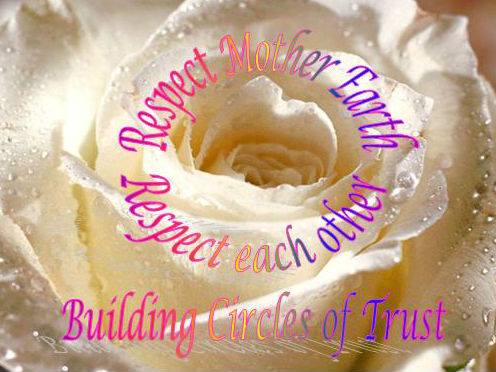Mind is the Builder. What we allow our mind to do creates our life. We control our mind by what we allow it to see (imagine) and by what we say (think) and how we say it. If we repeatedly say "I want to lose weight.", e.g., we will be forever wanting to lose weight. If we repeatedly say "I want to win the lottery.", we will never win it.
Why?
The word "want" means lack. We will never have what we "want", what we say we lack. Saying “I wish” is a clear statement of desire. Is saying "I wish" the firmest reality statement? We can be more specific.
Suppose, under certain conditions, we say "I am weighing 160 lbs." If this is other wise reasonable we can look forward to weighing 160 lbs. as we repeat this thought daily with conviction for a period. We will notice we are losing or gaining weight according to our circumstances without much conscious effort.
What are the conditions? I have noticed in the past that when I made a decision in a meditative state that I would automatically do whatever was necessary to carry it out. Events would continue to carry out this decision until and unless I changed my mind while in a like energetic state. Now, I find making a decision and affirming it daily is also enough to set actions or series of actions in motion. The other conditions are that it should at least be physically possible, that it should be for the good and that it harms no one.
Phrasing what is wished as one or more positive statements is usually most effective. If we desire an end to war, for example, we can say "I wish lasting peace." If we’d like an end to crime and violence, we can say "I wish that all people are respected in their person and possessions. These ideals can also be stated as "I see lasting peace." or "I see all people being respected by themselves and others." These are not equivalent statements but which is more inclusive? "I see the property rights of all respected by all" or “I see all persons respected by others?"
Repeated positive verbalized ideas are called affirmations. Using daily affirmations has been recommended by many known for their spiritual ways and advice as helpful tools in our daily life. The best affirmations are the ones that resonate with our heart, that we have made our own. We chose it, we wish it, we own it. It is this clear active choosing which gives energy to what we desire and causes it to be noticed and picked up, shared by others. This process is part of forming the "collective consciousness," how we build our collective human reality.
"We"
It is good when we are speaking of self to use the plural, first person form. When we say "I" we are referring to only one aspect of us, often in the here and now, at a particular point in space and time. We, however, have many parts. We are personality, mind, intellect, body, ego, Soul, etc., and this is all in considering just this life time only. Whether we consciously accept it or not, we are all spirits having a physical experience and it is probably more beneficial to recognize this at some level 99% of the time.
In using "we", our multi-dimensionality is seen and recognized, at least sub consciously, and we are opening doors for expanding our awareness as appropriate. Speaking and thinking of self as "we" allows inclusion of all other aspects of self, all of our experiences, memories, feelings, ancestors, and relationships, permits healings, recognizing our wholeness and our unity with all that is.
When we speak with self, using the first person may also be more beneficial than saying “you”. The word “you” refers to other, to one who is seen as separate. It may not seem as friendly, nor inclusive. It makes it easier to say “This does not apply to me.” Using “I, my, me,” etc. reminds us this is personal. Both are valuable perspectives at given points in our experience.
For instance, when experiencing an overwhelming emotional response of another, it may be good to remind self that it is not “ours” so that we maintain our own equilibrium. However, we can empathize and have compassion for one who is experiencing the emotion, remembering we are in fact connected and it is also our experience.
Using the first person plural (we) reminds us that not only is all of us involved but that we are, in fact, connected with all that is. It is a reminder that we are never alone. It is a reminder that we are an aspect of the divine. It is a reminder that we are connected with every other living being in our field of awareness and beyond.
Carefully choosing our words thus shapes our perception of reality, defines our reality, limiting or expanding our understanding.
There are other factors. Being grateful always colors what we see and how we see it as it is an energy modifier. Saying/thinking “thank you” automatically raises the frequency. Feeling love for self and/or another is also a frequency changer, improving our perception.
The true meaning of what we say is governed by what we think and feel. This is what we really
share with each other.
Do you know?
We are made in the image of God. He is NOT made in ours.
Remember: We ARE love.
Wanisi do
To return to directory for LITN newsletters for 2021-2023,
click on
page 2021-3 NL
To see directory for LITN newsletters for 2018-2020,
click on
page 2018-20 NL
Contact: neetopkkeetopk@pm.me (Etaoqua)
Love Banishes Fear!
cooperation respect equality sharing sovereignty
non-hierarchal non-judgmental
neetopkkeetopk.org
Copyright © 2021 Etaoqua All rights reserved.
